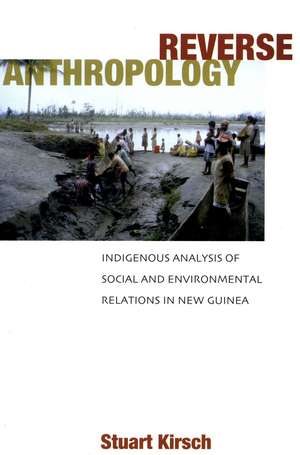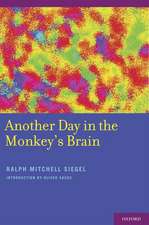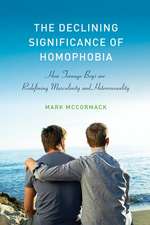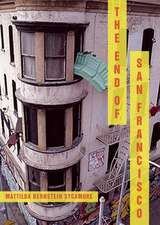Reverse Anthropology: Indigenous Analysis of Social and Environmental Relations in New Guinea
Autor Stuart Kirschen Limba Engleză Paperback – 2 aug 2006
While ethnography ordinarily privileges anthropological interpretations, this book attempts the reciprocal process of describing indigenous modes of analysis. Drawing on long-term ethnographic research with the Yonggom people of New Guinea, the author examines how indigenous analysis organizes local knowledge and provides a framework for interpreting events, from first contact and colonial rule to contemporary interactions with a multinational mining company and the Indonesian state.
This book highlights Yonggom participation in two political movements: an international campaign against the Ok Tedi mine, which is responsible for extensive deforestation and environmental problems, and the opposition to Indonesian control over West Papua, including Yonggom experiences as political refugees in Papua New Guinea. The author challenges a prevailing homogenization in current representations of indigenous peoples, showing how Yonggom modes of analysis specifically have shaped these political movements.
This book highlights Yonggom participation in two political movements: an international campaign against the Ok Tedi mine, which is responsible for extensive deforestation and environmental problems, and the opposition to Indonesian control over West Papua, including Yonggom experiences as political refugees in Papua New Guinea. The author challenges a prevailing homogenization in current representations of indigenous peoples, showing how Yonggom modes of analysis specifically have shaped these political movements.
| Toate formatele și edițiile | Preț | Express |
|---|---|---|
| Paperback (1) | 173.10 lei 3-5 săpt. | |
| Stanford University Press – 2 aug 2006 | 173.10 lei 3-5 săpt. | |
| Hardback (1) | 646.60 lei 6-8 săpt. | |
| Stanford University Press – 2 aug 2006 | 646.60 lei 6-8 săpt. |
Preț: 173.10 lei
Nou
Puncte Express: 260
Preț estimativ în valută:
33.12€ • 36.09$ • 27.91£
33.12€ • 36.09$ • 27.91£
Carte disponibilă
Livrare economică 02-16 aprilie
Preluare comenzi: 021 569.72.76
Specificații
ISBN-13: 9780804753425
ISBN-10: 0804753423
Pagini: 296
Dimensiuni: 152 x 229 x 23 mm
Greutate: 0.4 kg
Ediția:1
Editura: Stanford University Press
Colecția Stanford University Press
ISBN-10: 0804753423
Pagini: 296
Dimensiuni: 152 x 229 x 23 mm
Greutate: 0.4 kg
Ediția:1
Editura: Stanford University Press
Colecția Stanford University Press
Recenzii
"Kirsch deserves recognition for this refreshing and intellectually stimulating monograph . . . That this work combines such an emancipatory potential for anthropology with descriptive, theoretically compelling, and well-written ethnography is a testament to Kirsch's scholarship and activism."—Anthropos
"Kirsch's ethnography is compelling on several levels. It is an excellent example of using indigenous frames of reference for understanding contemporary issues of globalization, colonialism and modernization. It is also a groundbreaking approach to the study of indigenous movements that yields alternative interpretations of political relationships and historical events going back to the first contact between European explorers and Melanesian indigenous groups. Finally, for students of anthropology, it is a highly personal account of the multiple roles of the anthropologist as analyst, participant and advocate for an indigenous group in a precedent-setting legal case against a powerful multinational mining corporation."—Canadian Review of Sociology
"Kirsch's ethnography is compelling on several levels. It is an excellent example of using indigenous frames of reference for understanding contemporary issues of globalization, colonialism and modernization. It is also a groundbreaking approach to the study of indigenous movements that yields alternative interpretations of political relationships and historical events going back to the first contact between European explorers and Melanesian indigenous groups. Finally, for students of anthropology, it is a highly personal account of the multiple roles of the anthropologist as analyst, participant and advocate for an indigenous group in a precedent-setting legal case against a powerful multinational mining corporation."—Canadian Review of Sociology
"What is masterful about this . . . book is that the author, all the while telling the stories of these contemporary environmental and political struggles, contextualizes them in deeply indigenous ways of knowing and understanding history and the natural and social world."—Journal of Anthropological Research
"Kirsch's ethnographic passages sing with the immediacy of deep and vibrant experience . . . Because of its rich detail and moral clarity, Reverse Anthropology is a productive contribution to anthropological understandings of indigenous social analysis and it deserves a wide readership."—Expedition
"Kirsch documents and explains how Yonggom people construct social worlds and relationships through exchange and what happens when these patterns are disrupted or unreciprocated. The ethnographic descriptions of everyday life, conversations, complex rituals, myths, magic, and sorcery are rich in detail—reflecting his long association with people there and his empathic identification with the sorrow and loss they have experienced."—Current Anthropology
"In a sensitive and nuanced discussion of Yonggom emotions and morality, he effectively illustrates that Yonggom identify sorcerers by examining human emotions and intentionality."—American Anthropologist
"Perhaps, if one thing can save our species hurtling to a collective global suicide through the nightmare of over industrialization, it's Reverse Anthropology: making our own society the subject of an objective analysis from the view-point of other cultures, and drawing on this insight . . . Kirsch's book is a significant contribution to this exercise."—Mines & Communities
"This book . . . serves as a model for culturally appropriate solutions to contemporary local problems."—CHOICE
"Reverse Anthropology is an uncommonly sophisticated work of engaged ethnography, and a book that provides an impressive and uncompromising model of equal accountability to scholarly research and indigenous advocacy. With patience, insight, and brilliant attention to Yonggom subjectivity, Stuart Kirsch reveals what it means to turn anthropology inside out. This is a standout book in the new anthropology of modern Melanesia."—Steven Feld, University of New Mexico
"This is an important story that will draw many audiences. It weaves personal experience, politics, and activism in and out of a scholarly analysis made possible by the way Kirsch draws on the analytical skills of his subjects. In this it is nothing short of a brilliant and sympathetic enterprise."—Dame Marilyn Strathern FBA, William Wyse Professor of Social Anthropology, University of Cambridge
"Stuart Kirsch's work is distinquished by his unusual analytic approach to collaborative work with the Yonggom people in pursuing environmental and civil rights. Inspired by Roy Wagners study of Melanesian cargo cults in terms of indigenous analyses of land, labor, capital, and consumption, Dr. Kirschs Reverse Anthropology links two traditions of research in Melanesia: classic ethnographic studies of reciprocity, religion, kinship, ecology, and personhood, dating from the works of Malinowski and Mauss, to contemporary research on class, commodification, citizenship, environmental pollution, and political violence. This compelling study demonstrates the conceptual and political contribution of reverse anthropology to our common understanding of the workings of local communities, nation-states, transnational corporations, and so-called modernization, thus creating a new synergy in the scholarship of Melanesia relevant to anthropological work much more broadly."—Gillian Feeley-Harnik, University of Michigan
"Perhaps, if one thing can save our species hurtling to a collective global suicide through the nightmare of over industrialization, it's Reverse Anthropology: making our own society the subject of an objective analysis from the view-point of other cultures, and drawing on this insight . . . Kirsch's book is a significant contribution to this exercise."—Mines & Communities
"This book . . . serves as a model for culturally appropriate solutions to contemporary local problems."—CHOICE
"Reverse Anthropology is an uncommonly sophisticated work of engaged ethnography, and a book that provides an impressive and uncompromising model of equal accountability to scholarly research and indigenous advocacy. With patience, insight, and brilliant attention to Yonggom subjectivity, Stuart Kirsch reveals what it means to turn anthropology inside out. This is a standout book in the new anthropology of modern Melanesia."—Steven Feld, University of New Mexico
"This is an important story that will draw many audiences. It weaves personal experience, politics, and activism in and out of a scholarly analysis made possible by the way Kirsch draws on the analytical skills of his subjects. In this it is nothing short of a brilliant and sympathetic enterprise."—Dame Marilyn Strathern FBA, William Wyse Professor of Social Anthropology, University of Cambridge
"Stuart Kirsch's work is distinquished by his unusual analytic approach to collaborative work with the Yonggom people in pursuing environmental and civil rights. Inspired by Roy Wagners study of Melanesian cargo cults in terms of indigenous analyses of land, labor, capital, and consumption, Dr. Kirschs Reverse Anthropology links two traditions of research in Melanesia: classic ethnographic studies of reciprocity, religion, kinship, ecology, and personhood, dating from the works of Malinowski and Mauss, to contemporary research on class, commodification, citizenship, environmental pollution, and political violence. This compelling study demonstrates the conceptual and political contribution of reverse anthropology to our common understanding of the workings of local communities, nation-states, transnational corporations, and so-called modernization, thus creating a new synergy in the scholarship of Melanesia relevant to anthropological work much more broadly."—Gillian Feeley-Harnik, University of Michigan
Notă biografică
Stuart Kirsch is Assistant Professor of Anthropology at the University of Michigan.
Textul de pe ultima copertă
“Reverse Anthropology is an uncommonly sophisticated work of engaged ethnography, and a book that provides an impressive and uncompromising model of equal accountability to scholarly research and indigenous advocacy. With patience, insight, and brilliant attention to Yonggom subjectivity, Stuart Kirsch reveals what it means to turn anthropology inside out. This is a standout book in the new anthropology of modern Melanesia.”—Steven Feld, University of New Mexico
“This is an important story that will draw many audiences. It weaves personal experience, politics, and activism in and out of a scholarly analysis made possible by the way Kirsch draws on the analytical skills of his subjects. In this it is nothing short of a brilliant and sympathetic enterprise.”—Dame Marilyn Strathern FBA, William Wyse Professor of Social Anthropology, University of Cambridge
“This is an important story that will draw many audiences. It weaves personal experience, politics, and activism in and out of a scholarly analysis made possible by the way Kirsch draws on the analytical skills of his subjects. In this it is nothing short of a brilliant and sympathetic enterprise.”—Dame Marilyn Strathern FBA, William Wyse Professor of Social Anthropology, University of Cambridge
Descriere
Stuart Kirsch is Assistant Professor of Anthropology at the University of Michigan. He has consulted widely on environmental issues and land rights in the Pacific, and was actively involved in the political campaign and legal case against the environmental impact of the Ok Tedi mine in Papua New Guinea.














